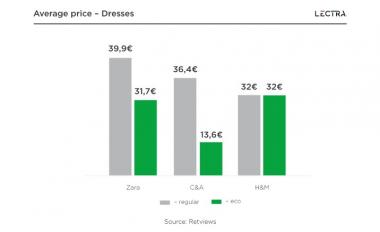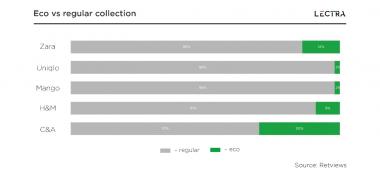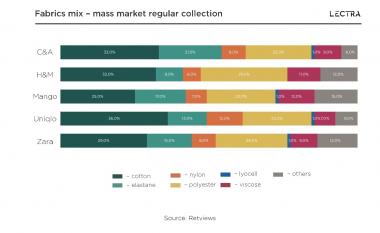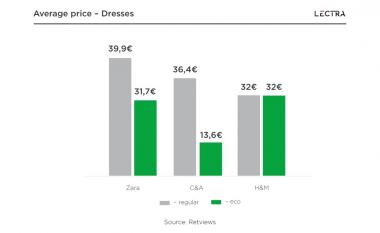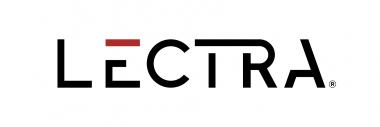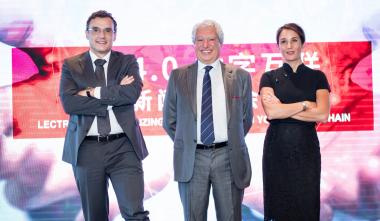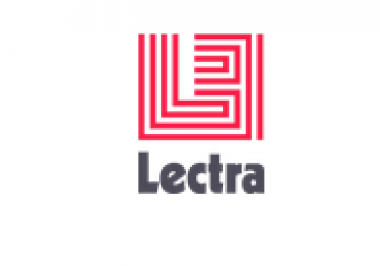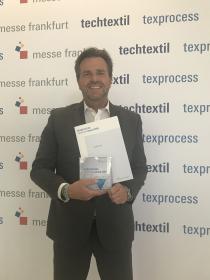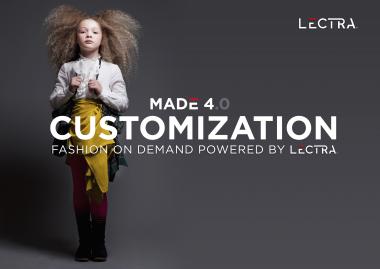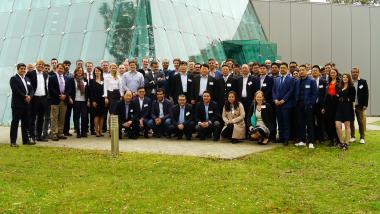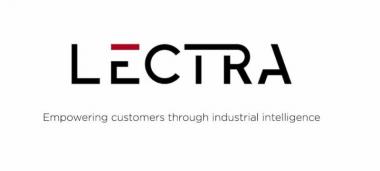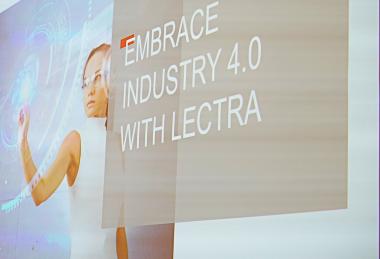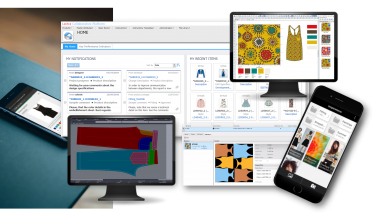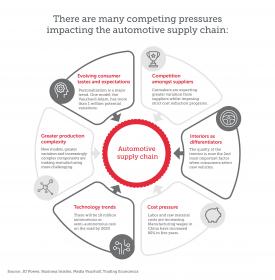LECTRA Umfrage: Wie sind Fast Fashion-Unternehmen in puncto nachhaltiger Mode aufgestellt?
- 10 % ihres Angebots ist ökologisch verantwortungsbewusst.
- Nachhaltige Baumwolle ist für Einzelhändler in den kommenden Jahren eine Priorität.
- Nachhaltige Kleidung kostet weniger als Standardkleidung.
- Mit Fashion on Demand gemäß den Verbraucherwünschen ein transparentes und nachhaltiges Angebot auf den Markt bringen.
Ismaning/Paris – Lectra, Technologie-Partner für Textil und Leder verarbeitende Unternehmen, hat basierend auf Analysen von Retviews, einem kürzlich erworbenen Startup, bei führenden Fast Fashion-Brands eine Umfrage zu nachhaltiger Mode durchgeführt. Modeunternehmen haben sich entsprechend der neuen Gesundheitsschutzregeln angepasst und ihre Geschäfte wieder geöffnet.
Covid-19 hat bei zahlreichen Konsumenten den Wunsch geweckt, ein sinnvolleres Leben zu führen und sich verantwortlicher zu verhalten. Der Kunde wägt seine Kaufentscheidung neu ab und ist weniger angezogen von der Fiktion der Hyperauswahl durch Fast Fashion und sucht Einzigartigkeit, Inspiration und Kreativität. Für die Modeindustrie kann dies der Auslöser sein, um die Art und Weise zu ändern, wie sie ihre Produkte entwirft, produziert und vertreibt. Mit dem Kauf eines Produkts möchten Kunden von heute ihre Werte zum Ausdruck bringen und bekräftigen. Demzufolge müssen Modemarken ihr Angebot zukunftsorientiert verändern und einen ökologisch verantwortungsvolleren, authentischen und transparenten Ansatz verfolgen.
Bedarfsgerechte Supply-Chain für nachhaltige Produkte und weniger Überbestände
Die Fashionbranche kann Echtzeit-Verbraucherdaten verwenden, um die tatsächliche Nachfrage und die finale Produktion aufeinander abzustimmen: das richtige Produkt, zum benötigten Zeitpunkt, in der nachgefragten Menge, in der richtigen Qualität. Überbestände können mit Fashion on Demand minimiert werden in dem Material eingespart wird. Rabattschlachten und hohe Preisabschläge sind beendet. Mit Fashion on Demand für den Händler schnell auf Nachbestellungen und Nachschub reagieren, neue Marktchancen rund um Themen wie Made-to-Order (Kleinserien), Made-to-Customize, Made-to-Measure realisieren. Alles heute möglich.
Nachhaltige Kollektionen sind weiterhin selten
Die Retviews-Umfrage zeigt, dass der Anteil nachhaltiger Mode in den Kollektionen der verschiedenen Einzelhändler sehr unterschiedlich ist. Ökofreundliche Kollektionen machen beispielsweise einen geringen Teil des Angebots von führenden Marken wie Zara und H&M aus, die beim G7-Gipfeltreffen in Biarritz den Fashion Pact mitunterzeichnet haben.
Die Join Life-Kollektion von Zara macht 14 % der Gesamtkollektion aus, während die #Wearthechange-Kollektion von C&A fast 30 % der Gesamtkollektion darstellt. Die Conscious-Kollektion bei H&M, die den von der Fashion Revolution geschaffenen Fashion Transparency Index anführt, entspricht weniger als 10 % der Gesamtkollektion.
Produktzusammensetzung in umweltfreundlichen Kollektionen
C&A, H&M und Inditex (Zara) gehören zu den vier größten Verbrauchern von organischer Baumwolle. Alle Marken, die analysiert wurden, präsentieren ihre Baumwolle als nachhaltig und sehen dies für 2020 und darüber hinaus als Priorität.
Es besteht nur ein geringer Unterschied zwischen den häufig im Massen- und im Premiummarkt verwendeten Stoffen. Das gleiche gilt für den Vergleich zwischen ökofreundlichen und Standardkollektionen. Baumwolle, synthetische Stoffe wie Polyester, Elastan und Viscose sind die am meisten angebotenen und verwendeten Stoffe.
Sind nachhaltige Stoffe teurer?
Laut den Umfrageergebnissen ist die Annahme, dass nachhaltige Kleidungsstücke teurer sind, falsch. Zara’s nachhaltige Join Life-Kollektion ist ein gutes Beispiel dafür. Ein Kleid aus der Standardkollektion kostet im Durchschnitt €39,90, während ein Kleid aus der Join Life-Kollektion nur €31,70 kostet.
„Nachhaltigkeit bringt uns zahlreiche neue Chancen. Für die Generation Z ist Nachhaltigkeit ein sehr wichtiges Thema und Einzelhändler haben zugehört und diese Bedenken in ihren Waren berücksichtigt. 90 % der Verbraucher sagen, dass sie sich der aktuellen Umweltsituation bewusst und bereit sind, ihr Verhalten zu ändern*, um den Klimawandel zu bekämpfen. Das zeigt deutlich die Bereitwilligkeit, in ökologische Produkte zu investieren. Angesichts dieses Wandels haben Brands eine soziale Verantwortung: Sie müssen ihre Kunden informieren, ihre Fortschritte in diesem Bereich transparent darstellen und einige Herausforderungen, vor denen sie stehen, teilen, um ihre Kunden aufzuklären. Derzeit gibt es keine internationalen Regularien für die Definition von Nachhaltigkeit bei Bekleidung. Das bedeutet, dass wir noch einen langen Weg vor uns haben, bis es für nachhaltige Fashion eine Standardisierung geben wird“, erklärt Quentin Richelle, Chief Marketing Officer, Retviews.
Sprachperlen GmbH


